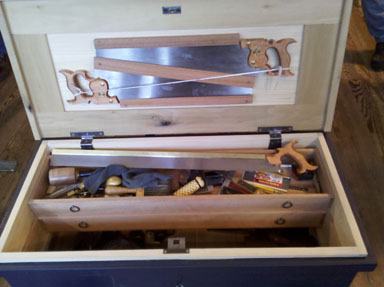I think a lot of people do, and that's fine. I see it as an indirect route to get to what I really want to get to, though.
It's sort of like learning mathematics from someone who doesn't have a great grip on it yet, or taking golf tips from a friend who has a similar handicap. Those kinds of things are useful the for an introduction to mathematics or the first few rounds of golf you play. After that, it seems to me that a combination of professional opinion and time spent "in the dirt" (as hogan put it) is more appropriate unless it's a social sharing of common level insights.
By the number of people who go to 1 hour or 1 day classes on subjects, or who buy literature and videos, it's clear that not everyone shares my opinion. this isn't the only subject where that's the case.
And because of that, anyway, I'd rather not extrapolate on the question.





 Reply With Quote
Reply With Quote









